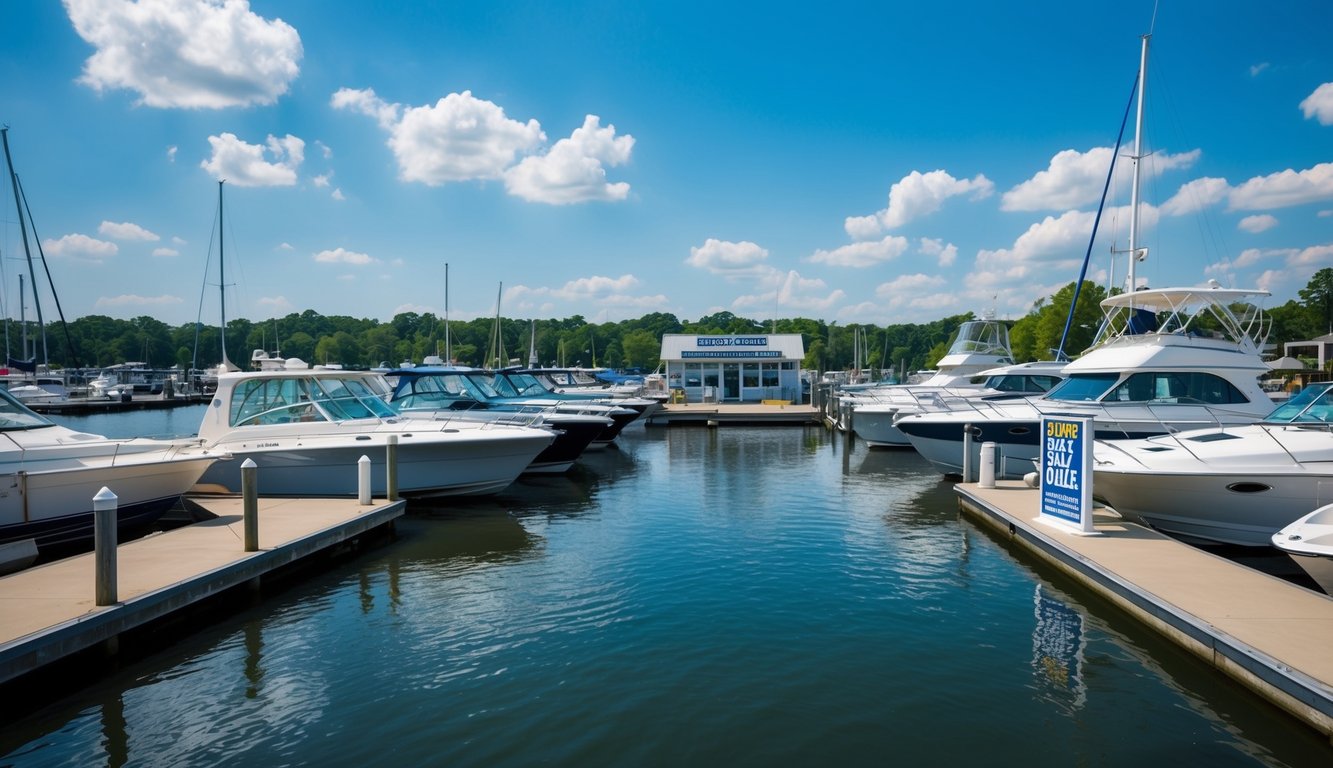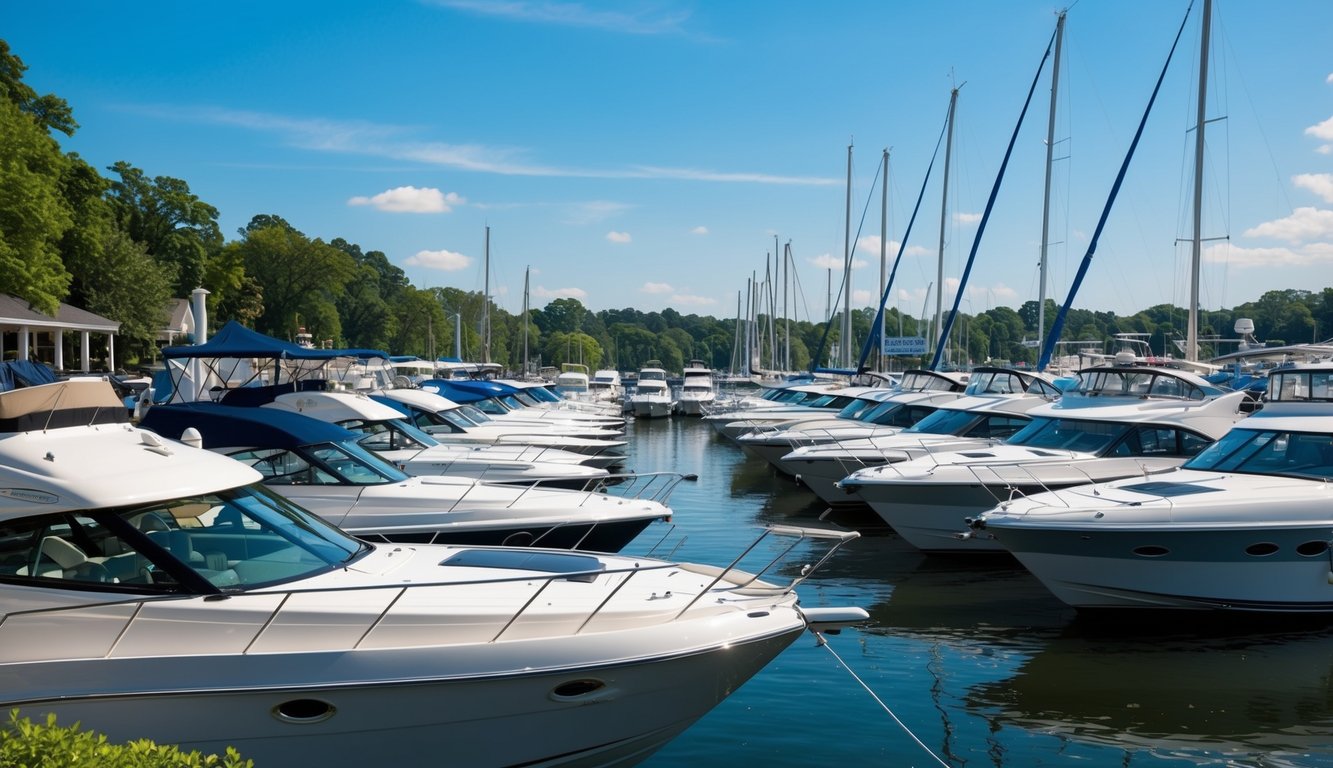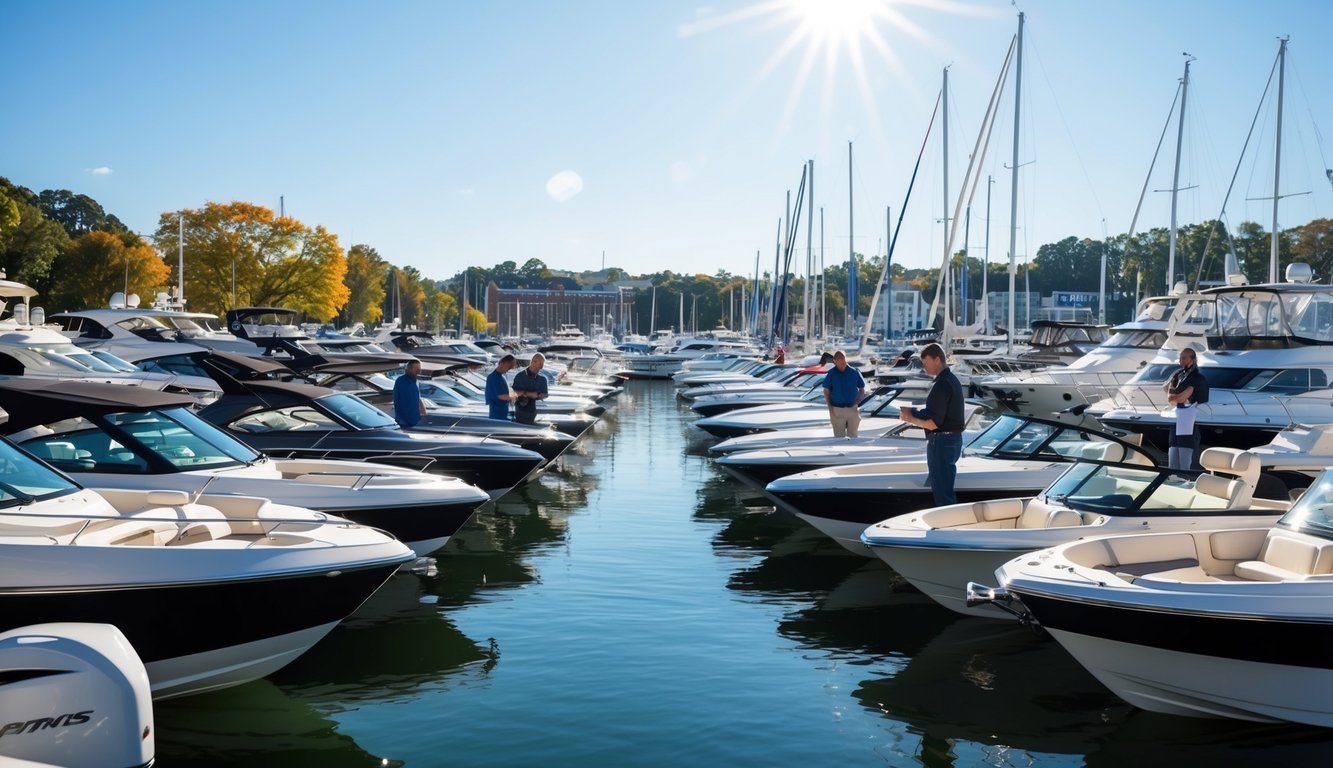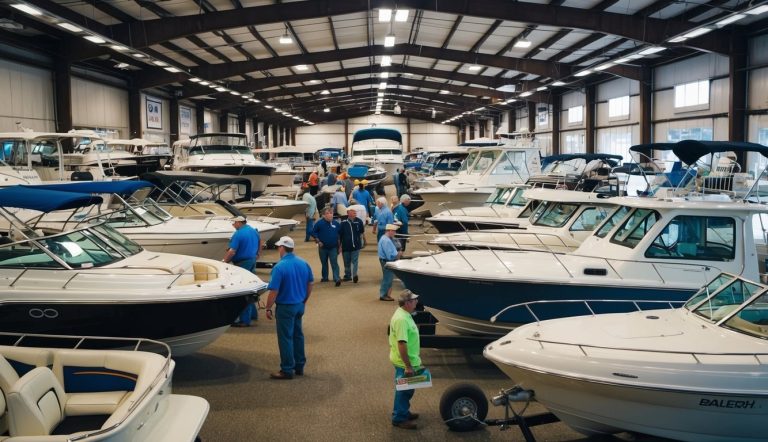Raleigh’s boat market thrives thanks to its proximity to popular boating destinations like Falls Lake, Jordan Lake, and Kerr Lake. These nearby waterways make Raleigh an ideal location for boat ownership and sales. Let’s explore the world of selling boats in Raleigh, NC!
When exploring the Raleigh boat market, you’ll find a diverse selection of vessels. The Raleigh market caters to different boating activities:
- Recreational cruising: Pontoon and deck boats
- Watersports: Wake boats and ski boats
- Fishing: Bass boats and jon boats
- Luxury boating: High-end cruisers
Navigating Legal Requirements for Selling Boats in Raleigh

When selling a boat in Raleigh, you must follow specific legal procedures to ensure a smooth and lawful transaction. North Carolina has established requirements for documentation, taxation, and safety compliance that protect both sellers and buyers.
Boat Registration and Documentation
In North Carolina, proper documentation is essential when selling your boat. You’ll need to provide a bill of sale that includes all serial and model numbers for the vessel, engine, and trailer. This document serves as proof of the transaction. For titled boats, you must transfer the title to the new owner. In North Carolina, boats that are 14 feet or longer or have motors of 10 horsepower or more require titling. Visit the NC Wildlife Resources Commission office to handle the transfer process.
You should also gather these important items:
- Maintenance records showing your boat’s service history
- Warranty documentation if applicable
- Proof of ownership if your boat isn’t titled
- Title for the trailer if selling as a package
Keep copies of all paperwork for your records. This protects you from future liability issues and disputes.
Sales Taxes and Fees
In Raleigh, the buyer typically pays sales tax on boat purchases, but you should understand the process to inform potential buyers. The current sales tax rate in Wake County is 7.25%.
Buyers must pay:
- Highway use tax (3% of the purchase price)
- Title transfer fee ($40 for boats)
- Registration fee ($26 for one-year registration)
As the seller, you should provide a clear record of the sale price on your bill of sale. This helps the buyer calculate accurate taxes. If you’ve prepaid registration fees, you may qualify for a prorated refund. Contact the NC Wildlife Resources Commission to inquire about this process. Remember that avoiding proper documentation to evade taxes can result in penalties for both parties.
Safety Regulations Compliance
Before selling your boat, ensure it meets all NC boating regulations. This increases buyer confidence and helps avoid legal issues.
Your boat should have:
- Proper navigational lights
- Coast Guard-approved life jackets for each passenger position
- Fire extinguisher (required for boats with enclosed engine compartments)
- Working horn or sound-producing device
- Visual distress signals for coastal waters
Mention to potential buyers that North Carolina requires boating education certification for anyone born on or after January 1, 1988. This requirement applies to operating vessels propelled by motors of 10 horsepower or greater. Consider scheduling a voluntary safety inspection before listing your boat. Local marine patrol officers or the Coast Guard Auxiliary can perform these inspections at no cost. This proactive step demonstrates your commitment to safety and may increase your boat’s marketability.
Setting an Attractive and Competitive Price

Pricing your boat correctly is crucial when selling in the Raleigh market. The average boat value in Raleigh is approximately $75,999, with prices ranging from $10,000 to $369,000 depending on the model, condition, and features. Start by researching similar boats currently for sale in the area. Look at Inland Boat Company’s inventory to see how comparable vessels are priced. This gives you a realistic baseline for setting your own price.
Consider these factors when determining your boat’s value:
- Age and condition of the hull, engine, and components
- Brand reputation (Malibu, Axis Wake, and Bennington are popular in Raleigh)
- Recent upgrades or maintenance performed
- Included accessories and equipment
- Season (spring and early summer typically command higher prices)
Be prepared to justify your asking price with documentation of maintenance records and recent improvements. Potential buyers appreciate transparency about the boat’s history. You might want to price slightly higher than your minimum acceptable offer to allow room for negotiation. Most buyers expect some flexibility on boat prices. If your boat isn’t attracting interest after 3-4 weeks on the market, consider reducing the price by 5-10%. A competitively priced boat in the Raleigh boating market typically sells much faster than an overpriced one.
Creating an Effective Boat Sales Process

A structured boat sales process helps both dealers and private sellers maximize their chances of success in the Raleigh market. Proper preparation and customer-focused strategies can significantly reduce sales time while ensuring fair value.
Initial Buyer Contact and Inquiries
- When potential buyers first reach out, respond promptly—ideally within hours. Prepare a detailed fact sheet about your boat that includes specifications, maintenance history, and notable features.
- “The first impression is critical in boat sales,” says Vincent Finetti of Yacht Sales Academy, who recommends 8 specific steps for high performance in boat sales.
- Keep a log of all inquiries with contact information and specific questions asked. This helps you track serious buyers and follow up effectively.
- Pre-qualify buyers when possible by gently asking about their boating experience and intended use. This helps you highlight relevant features during later discussions.
- Consider creating a short video walkthrough of your boat to send to interested parties. This saves time and helps serious buyers decide if they want to see the boat in person.
Boat Viewing and Inspections
- Schedule viewings during good weather when possible, as boats show better in sunshine. Clean your vessel thoroughly before each showing—first impressions matter tremendously.
- During the viewing, let buyers explore at their own pace but remain available for questions. Be honest about any issues with the boat.
- According to experienced boaters, inspections are mandatory for both the boat and motor, typically paid for by the buyer. Make service records available and be prepared for professional inspections.
- Point out unique features or recent upgrades that add value. If you’ve made investments in the boat, explain how they benefit the new owner.
- Have comparable listings ready to show buyers that your pricing is fair based on the current Raleigh market conditions.
Negotiation and Sales Agreements
- Prepare for negotiations by knowing your bottom price in advance. This prevents emotional decisions during bargaining sessions.
- When creating a sales agreement, include all serial and model numbers for the boat, engine, trolling motor, and trailer. This documentation protects both parties.
- Be clear about what is and isn’t included in the sale. Items like electronics, safety equipment, or custom accessories should be explicitly listed.
- Consider offering incentives for quick decisions, such as including extra gear or covering the first service.
- Keep all negotiations professional and pleasant, even when declining offers. The boating community in Raleigh is connected, and your reputation matters.
Finalizing the Sale and After-Sales Support
- Accept payment methods that protect both parties. Cashier’s checks or escrow services provide security for larger transactions.
- Provide the buyer with all documentation including the title, registration, warranty information, and service records. Make copies for your records.
- Offer a brief orientation session with the new owner to demonstrate features and operation. This goodwill gesture builds trust and may prevent future issues.
- Raleigh boat dealers typically provide after-sales support packages. As a private seller, consider offering limited support during the transition period.
- Follow up after the sale to ensure satisfaction. This simple courtesy can lead to referrals and maintain your standing in the local boating community.




